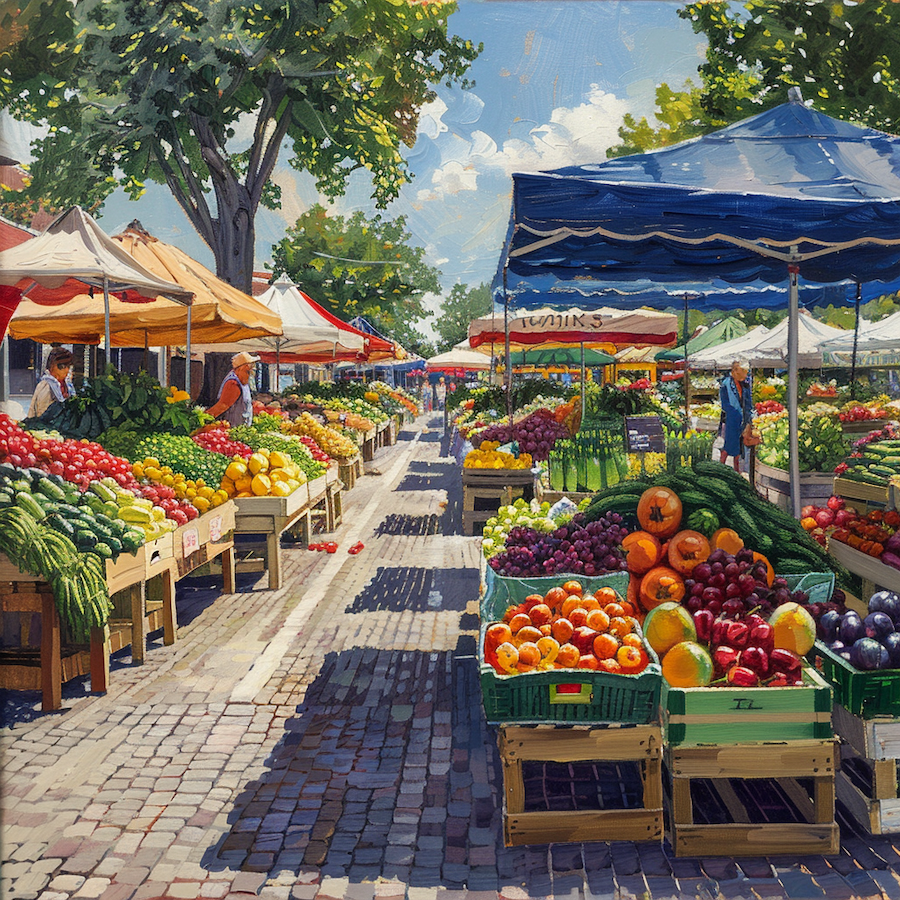For generations, farmers markets have been an integral part of the cultural and economic fabric of small towns across Central Illinois. These vibrant gatherings serve as more than just a place to buy fresh produce; they represent a connection between local farmers and the community, a tradition steeped in history and resilience.
The origins of farmers markets in this region can be traced back to the early settlers who relied on local agriculture for sustenance. As towns began to form and grow, these markets became essential hubs where farmers could sell their goods directly to consumers. In the late 19th and early 20th centuries, horse-drawn wagons filled with fruits, vegetables, and other farm products would line the streets on market days, drawing crowds eager to purchase the bounty of the season.
Despite the challenges posed by industrialization and urbanization, farmers markets persisted in Central Illinois, adapting to changing times and economic conditions. During the Great Depression, when many families struggled to make ends meet, these markets provided a lifeline, offering affordable, locally grown food to those in need. In the post-war era, as supermarkets became more prevalent, farmers markets faced competition, but their unique charm and the quality of their offerings kept them alive.
In recent decades, there has been a resurgence of interest in locally sourced food, driven by concerns about health, sustainability, and supporting small-scale agriculture. This renewed enthusiasm has breathed new life into farmers markets across Central Illinois, with many towns seeing a proliferation of markets throughout the summer months.
Today, farmers markets in small towns like Bloomington, Normal, Champaign, and Decatur are thriving, attracting both locals and tourists alike. These markets offer not only fresh fruits and vegetables but also a diverse array of artisanal products, including baked goods, honey, jams, and crafts. In addition to providing a platform for local farmers and producers to sell their goods, farmers markets also serve as community gathering spaces, where neighbors can come together to socialize, listen to live music, and support local businesses.
The COVID-19 pandemic presented challenges for farmers markets, forcing many to adapt to new safety protocols and restrictions. However, it also highlighted the essential role these markets play in ensuring access to fresh, healthy food, particularly in underserved communities. Many markets implemented online ordering systems, curbside pickup, and other innovative solutions to continue serving their customers while prioritizing public health.
Looking to the future, farmers markets in small towns of Central Illinois are poised to continue evolving, guided by a commitment to sustainability, community engagement, and economic vitality. As the demand for locally sourced food continues to grow, these markets will remain beacons of resilience, connecting farmers and consumers in a shared celebration of agriculture and community.

